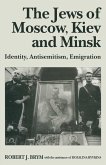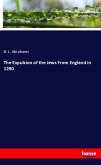One of the main consequences of recent work in early modern intellectual and religious history has been a discrediting of the notion of a sudden and dramatic transition to the spiritual world of the Enlightenment. Scholars are increasingly examining the underlying spiritual trends and tendencies which confirm the variety and complexity of the slow movement from Renaissance to Enlightenment, and the profound impact of many of the manifestations of intellectual and religious tension during the early modern period. The essays in this volume are a contribution to this process of reappraisal, focusing specifically on the phenomena of scepticism and millenarianism, especially as part of the more pronounced role of the Jews and their culture.
Bitte wählen Sie Ihr Anliegen aus.
Rechnungen
Retourenschein anfordern
Bestellstatus
Storno




